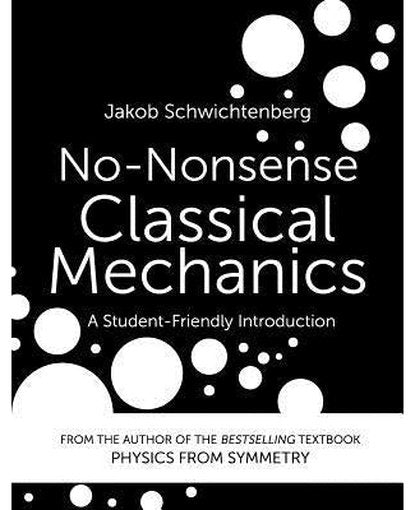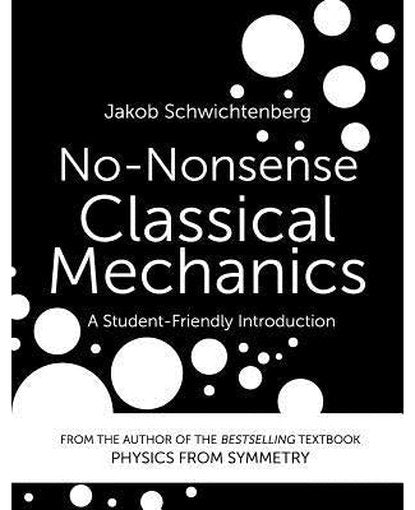Schwichtenberg, Jakob
No-Nonsense Classical Mechanics : A Student-Friendly Introduction
No-Nonsense Classical Mechanics : A Student-Friendly Introduction
Couldn't load pickup availability
Learning classical mechanics doesn't have to be hard
What if there was a way to learn classical mechanics without all the usual fluff? What if there were a book that allowed you to see the whole picture and not just tiny parts of it?
Thoughts like this are the reason that No-Nonsense Classical Mechanics now exists.
What will you learn from this book?
Get to know all fundamental mechanics concepts - Grasp why we can describe classical mechanics using the Lagrangian formalism, the Newtonian formalism, or the Hamiltonian formalism and how these frameworks are connected.Learn to describe classical mechanics mathematically - Understand the meaning and origin of the most important equations: Newton's second law, the Euler-Lagrange equation and Hamilton's equations.Master the most important classical mechanics systems - Read fully annotated, step-by-step calculations and understand the general algorithm we use to describe them.Get an understanding you can be proud of - Learn about beautiful and deep insights like Noether's theorem or Liouville's theorem and how classical mechanics emerges in a proper limit of special relativity, quantum mechanics and general relativity.
No-Nonsense Classical Mechanics is the most student-friendly book on classical nechanics ever written.
Here's why.
First of all, it's nothing like a formal university lecture. Instead, it's like a casual conservation with a more experienced student. This also means that nothing is assumed to be "obvious" or "easy to see".Each chapter, each section, and each page focuses solely on the goal to help you understand. Nothing is introduced without a thorough motivation and it is always clear where each equation comes from.The book contains no fluff since unnecessary content quickly leads to confusion. Instead, it ruthlessly focuses on the fundamentals and makes sure you'll understand them in detail.
The primary focus on the readers' needs is also visible in dozens of small features that you won't find in any other textbook
In total, the book contains more than 100 illustrations that help you understand the most important concepts visually.
In each chapter, you'll find fully annotated equations and calculations are done carefully step-by-step. This makes it much easier to understand what's going on. Whenever a concept is used that was already introduced previously there is a short sidenote that reminds you where it was first introduced and often recites the main points. In addition, there are summaries at the beginning of each chapter that make sure you won't get lost.


